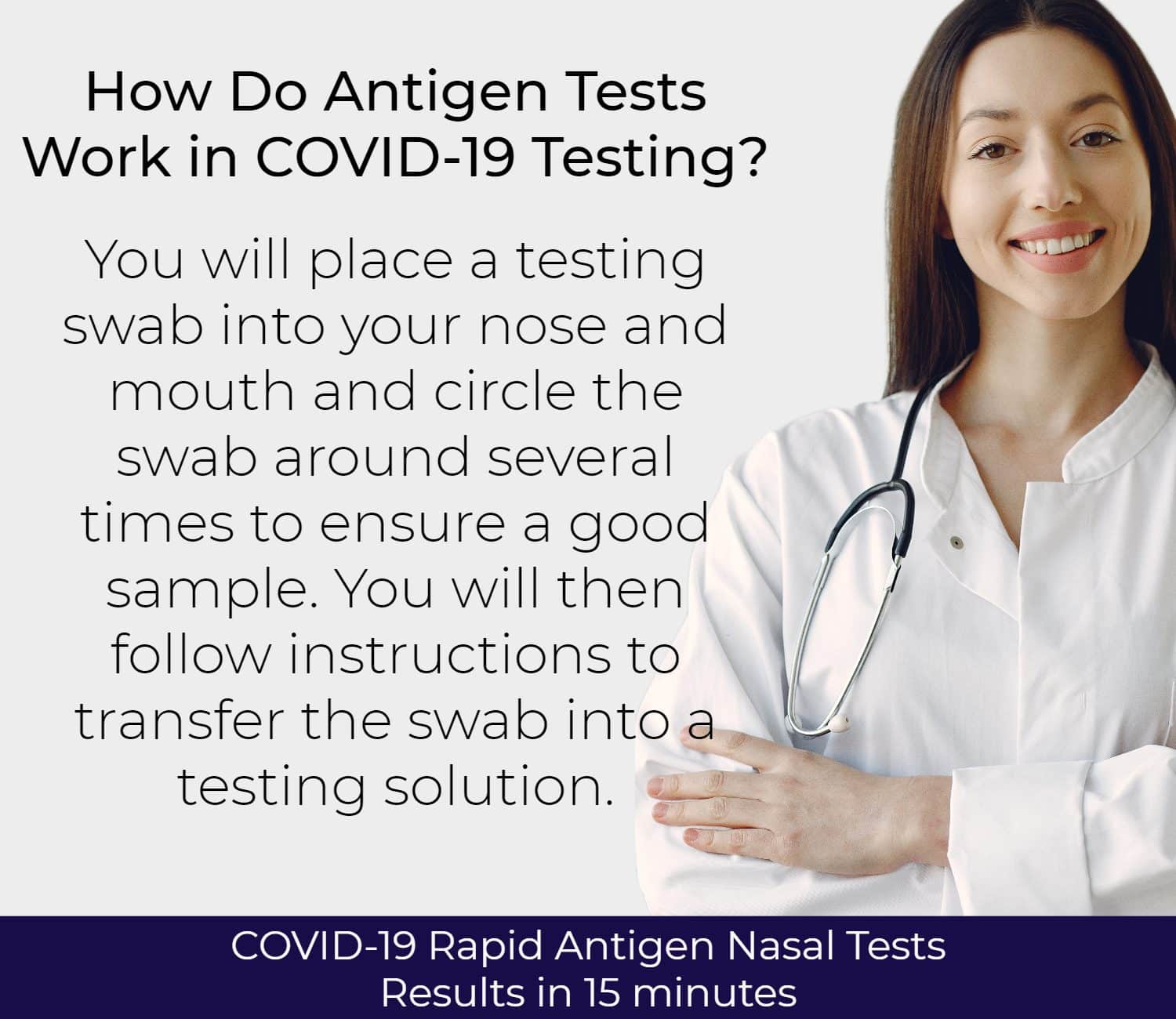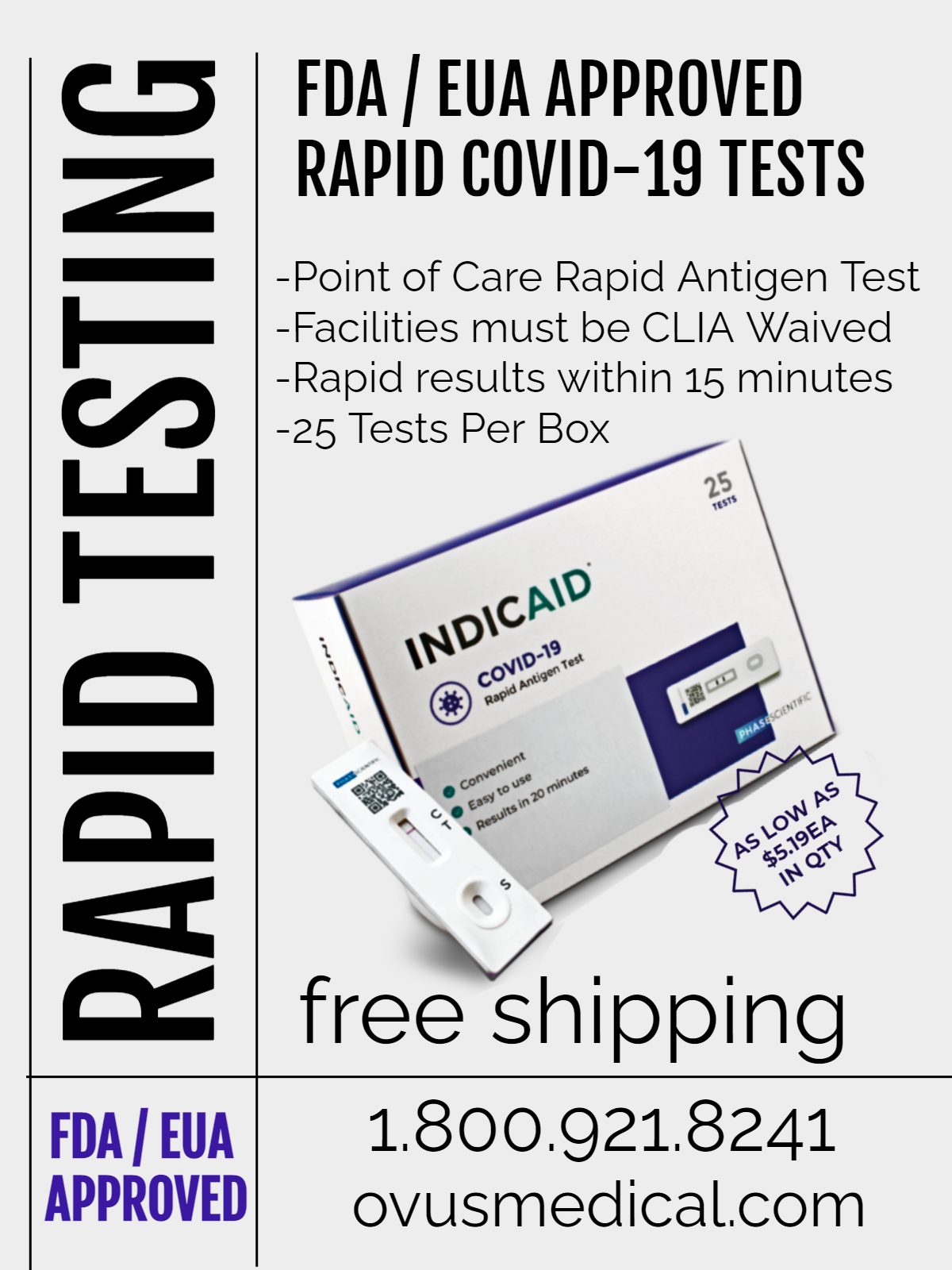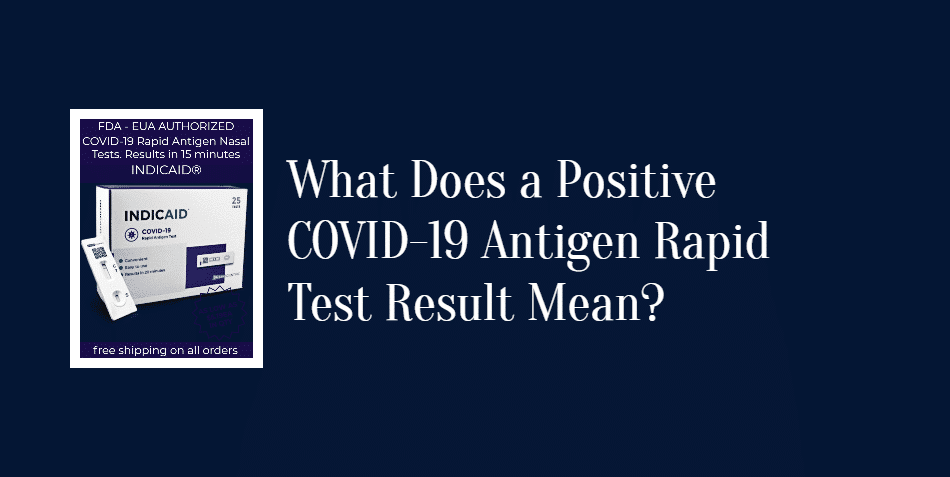CDC reported 705,264 new COVID-19 cases on January 5, 2022. They estimate 95% of these are the Omicron variant. And an antigen rapid test is the fastest way to know your status.
But you might wonder what to do if you test positive for COVID-19. What’s the difference between a PCR and antigen COVID-19 test? And for how long can you stay positive?
We have a guide that shines a light on antigen tests, positive results, and PCR tests. So you can get on with what’s important to you.
Keep reading to learn all you need to know.
What Is an Antigen Rapid Test for COVID-19?
Antigen rapid tests excel in any setting where speed is key. They detect virus proteins in a sample and give results in less than 30 minutes. They use a lateral flow cassette, like a pregnancy test, a swab, and an extraction fluid.
You can use them to check your COVID-19 status. They can help if you came into contact with someone infected, have symptoms, or want a fast COVID-19 home test.

How Do Antigen Tests Work?
You swab your nose and throat, place the swab in the extraction solution, and drop it onto the test cassette. Then you wait for the result.
Most kits come with a pipette-style tube to drip the sample onto the test. Results show in 5 to 30 minutes. A single line on the control line (C) shows the test has worked. If there is no line on C, the test is void.
The test line (T) shows the test result. A line on C but no line on T means the test is a valid negative. A line on T shows a positive result: The test detected COVID-19 proteins.
Benefits of Antigen Tests
The speed of results makes antigen rapid tests ideal for daily use. Many businesses use them to test employees in transport, education, and healthcare.
They are cheap to buy, give fast results, and you can do them without training. Most kits come with instructions. And you can find videos online.
Limits of Antigen Tests
Home testing means users can void tests by contaminating them by accident. Traces of food, drink, and dirt can affect the result.
False positives can lead to unneeded isolation. False negatives can put your community in danger. But if you take care, you can avoid flawed results.
What Is a PCR Test for COVID-19?
Polymerase Chain Reaction (PCR) tests are the most accurate detection technique for COVID-19. They are more in-depth than antigen rapid tests. And we use them to confirm positive results with a more detailed analysis.
How Do PCR Tests Work?
We take samples the same way as antigen rapid tests. You order your test. Swab your nose and throat. Place your swab into a tube with an extraction solution. Package it. Then send it to the laboratory
The lab then copies or amplifies the sample to see if it contains COVID-19 genetic material or RNA. If they detect RNA, they change it into DNA for analysis. We call this process reverse transcription.
Benefits of PCR Tests
They give detailed results. They are conclusive. And because they need professional analysis, they are less prone to errors. But not perfect.
False negatives and positives happen. And false negatives are most common. This is why home testing with antigen rapid tests is important.
Limits of PCR Tests
They take a long time to give results. You need to order a test and send it to the lab. Once your result is ready, you will get an email or text. But these labs are busy, and you might wait a few days. Rapid antigen tests take minutes.
Can Antigen or PCR Tests Identify Covid Variants?
No, antigen rapid tests and PCR tests detect COVID-19 infection. But they can’t tell you which variant you have.
For this, we need a genome sequencing study. Best to leave it to the universities, biochemists, and microbiologists. Besides, your isolation period remains the same.

What Is the Difference Between COVID-19 Antibody Tests and PCR Tests?
Antibody tests, or serology tests, use blood samples to detect COVID-19 antibodies. If you’ve had COVID-19 before or had the vaccines, you should have antibodies.
As we said, PCR tests detect COVID-19’s RNA. They tell you if you have the virus, but cannot tell you whether you’ve had it before.
What to Do If You Test Positive for COVID-19?
Stay calm and follow government guidance. If you’re vaccinated, you should dodge the worst effects. But you should take steps to protect others.
Isolate
CDC guidance states you should stay at home for 5 full days if you test positive. Day 0 is when your symptoms started or when you tested positive. Do a test on day 5. If you are negative and feel well on day 6, you can go out.
You should wear a mask around others for a further 5 days and limit social contact during this period. This is to protect others.
Inform Your Close Contacts
Contact tracing lets others know they have been in contact with someone with COVID-19. They may be negative, but knowing about it can help prevent community transmission. Your colleagues deserve to know too.
You can use COVID-19 exposure apps. Or you can contact people by phone. Either way, letting your contacts know is the best thing to do.
Track Your Symptoms and Test at Intervals
Take your temperature and pay attention to other symptoms. These could include a dry cough, tight chest, headache, body aches, and a runny nose. This can depend on the variant. You might lose your sense of taste or smell too.
Take an antigen rapid test every other day if you have enough. But if you run low, save some for the end of your isolation. Until Day 6, you must stay in isolation even if you test negative.
Can an Employer Ask for Proof of a Positive COVID-19 Test?
In short, yes. There are acts of government that protect your health data. But as COVID-19 classes as a national emergency, it can override sections of those acts.
COVID-19 testing in work has become as common as drug testing. And due to the pandemic, most bosses have the right to request it.
The HIPAA Does Not Apply to COVID-19
The 1996 Health Insurance Portability and Accountability Act (HIPAA) protects your health data. But it does not stop your employer from asking you about COVID-19 or any symptoms.
They can use this information for contact tracing. But they cannot disclose your identity to those with which you had contact.
The ADA Classes COVID-19 as a Direct Threat
The 1990 Americans with Disabilities Act (ADA) keeps your health data private. And it exempts you from certain health screenings. But there are exceptions.
COVID-19 meets the ADA criteria for a direct threat. Your employer can ask for data related to COVID-19. The purpose of ADA is to prevent disability-related discrimination. It does not cover COVID-19 inquiries.
Sick Pay and False Claims
Employers have the right to screen employees who enter the workplace. Consider this when you return. They must keep this data confidential. If you self-report your result from home, the same rules apply.
Submitting a false COVID-19 positive test to claim sick pay could constitute fraud. And in most cases, symptoms alone are enough to claim sick leave. Check your contract for your company’s sick pay guidelines.
How Long Can You Test Positive for Covid-19?
OK, so you’ve got it. How long will it take to get rid of it?
Most people test negative around day 5 or 7. But some people test positive for longer. This is due to viral load. The best way to know is by taking antigen rapid tests.
Viral Load and What It Means?
Viral load is how much of the virus we have in our bodies. After the incubation period, most of us have a high viral load. We are contagious.
After infection peaks, our immune systems fight to reduce our viral load. As days pass, we become less sick and less contagious. Then we recover and test negative.

Recovery Certificates for Travel
Once you have recovered you can apply for a COVID-19 recovery certificate. This can make travel easier. PCR tests can detect traces of COVID-19 up to 90 days after infection. And many companies choose antigen tests instead.
Recovery and vaccination should give you a degree of immunity from COVID-19. But even as we learn more about this virus, it is vital to stay on our toes.
Need Antigen Tests for Your Team?
Antigen rapid tests are now a commodity in most homes and businesses. And with such high demand, buying in bulk is best for peace of mind.
Ovus Medical stocks FDA-approved COVID-19 rapid tests. They detect lower than normal viral load samples. So you can catch infection faster than with other antigen rapid tests.
They are for point-of-care use, but you don’t need training or special equipment to use them. Each pack has 25 test kits and clear instructions.


